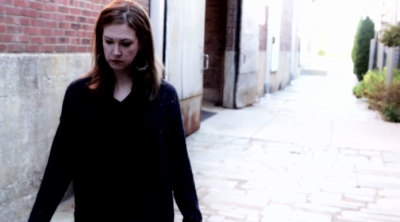Did the Abstinence Movement Actually Help Christians Save Sex for Marriage?

When Jimmy Hester evaluates the effectiveness of True Love Waits, an abstinence-based movement he is co-founder of, the Southern Baptist leader questions where society might be without it.
"What would have happened if this had not happened? What kind of impact might our culture have had on students if there had not been a sexual abstinence movement in '93, '94?" Hester asked, in an interview with The Christian Post.
For Hester, who expresses cynicism about using statistics to measure the outcome of his work ("you can shape them however you like"), anecdotes such as Christian singles telling him they still carry their abstinence pledge cards or testimonies from young adults who tell him that his work impacted their lives, provide more than sufficient evidence that his work was worthwhile.
Hester's campaign is the focus of a new documentary produced by Lifeway - the same Southern Baptist organization from which True Love Waits was founded - and was released on February 16. "True Love Waits: The Complicated Struggle for Sexual Purity" seeks to provide a frank analysis of the once-explosive movement, and follows up with a number of the movement's most influential and original cheerleaders.
"We knew from the beginning we wanted to address the criticisms, as well as the successes of the True Love Waits movement," Travis Hawkins, the director of the documentary, said in a statement. "We knew viewers would see through any spin we put on the story. We weren't afraid to have an honest conversation."

Hester and fellow Lifeway colleague, Richard Ross, developed the curriculum in the early 1990s; the fruit of meetings with parents in focus groups who had asked them to launch an abstinence-driven sex education curriculum.
They first introduced it to Ross' youth group, where it quickly took off after some of the teenage members shared their convictions to save sex until marriage before a meeting of 1,200 youth ministers.
A year after the campaign started, more than 210,000 cards from teenagers pledging abstinence were displayed in the National Mall in Washington, D.C.
"God totally took the message and blew it up and did things with it that we could never have done with any dollar amount to market it with. Every major news network was covering this movement...[In the] Georgia Dome — they stacked cards from the floor to the ceiling. They went to the Olympics several times. There were so many things that took place, that were just huge massive things that never could have been accomplished by man spending money," Scott Mills, executive producer of the movie and manager of LifeWay Films, told The Christian Post.

According to Hester and Mills, since 1993, the year that True Love Waits launched, the "number of students who are actively involved in sexual relationships has gone down," suggesting that the organization may have had some impact on young people's sexual practices. Yet while abstinence may be increasingly common among high school students, that is not necessarily the picture for young adults, including Christians.
In January, a ChristianMingle study suggested that 61 percent of Christians were willing to have sex with no strings attached. A 2011 Relevant Magazine poll claimed that 80 percent of "young, unmarried Christians have had sex" and that "two-thirds have been sexually active in the last year."
Indeed, those associated with True Love Waits are cognizant that not all individuals have managed to live up to the pledges on their cards. But Mills explains that despite the fact some departed from the movement's abstinence message after their teenage years, he believes that signing a statement to stay abstinent encouraged many to re-examine their faith later on in life.
"A lot of those same people [who broke their commitment] still came back for their faith and at some point realized that while I made that commitment and may have broken that commitment, I can still recommit to that today. I can still stay from this day forward decide that I am going to remain pure," said Mills.
One of the individuals profiled in the film is Susan Bohannon, who was one of the initial spokeswomen for the True Love Waits campaign. Bohannon appeared on national television shows speaking about her abstinence convictions as a teenager, only to go against her high school beliefs in college.
"I felt very shameful about even trying to talk to Him or sincerely worshipping because I knew that I was so far away but I wasn't sure how to get back," Bohannon said.
Reflecting on the movement, Bohannon reveals that she has subsequently realized that True Love Waits was not just merely a sexual ethic decision, but rather an attitude that came out of a relationship with Jesus.
"The message of True Love Waits is not about being a good person or being good or doing good things," she said. "The message of True Love Waits is about true love and no one displays true love better than Christ himself."
Mills echoed Bohannon's thoughts: "The message of True Love Waits is a message of hope. It's not a message of don't do this or here's a list of things you can and cannot do. It's a message of grace, about bringing people to a place of purity, whether they are young and haven't done in anything or they have, and they want to turn their life around and want to live how God tells us to live in his word."
Lifeway announced in December that it would be relaunching the movement as The True Love Project, a video-driven Bible study. Created by youth evangelist and pastor Clayton King, it features appearances from pastors Steve Furtick and Derwin Gray and author Jefferson Bethke.
Ben Trueblood, the Director of Student Ministry at LifeWay Christian Resources described the new goal of the series as being one where Millennials could "see how the Gospel impacts their purity and how their choices in purity are about more than their sexual decisions."




























